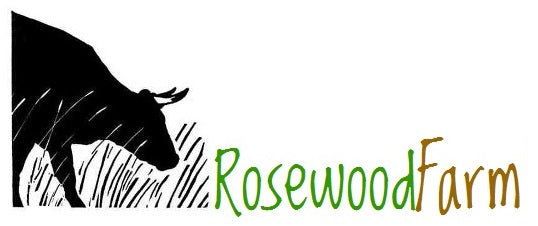Rosewood Farm Blog RSS
What's your beef with farming?
The Guardian revealed yesterday that 'industrial-scale beef farming comes to the UK', and it's likely that this kind of reporting will lead to some people reducing their consumption of beef - but is that really the best solution? Scenes like these will no doubt elicit strong feelings from the public about the welfare of animals contained within these 'feedlot' style rearing systems, but I tend to think that everyone is missing a trick. It may be that animals prefer to be in grass fields with hedgerows and trees for shelter, or they may actually enjoy having their food delivered to...
The Impossible Burger - the clue is in the name
If there's one thing that disgusts me more than environmental damage and animal cruelty, it's the processed food industry taking advantage of these things to feed us rubbish and sell it as a solution to our problems, at an inflated price. This week Joanna Blythman delved into the ingredients list of The Impossible Burger to try to work out exactly what it was made of. And that got me thinking, what if we decided to do the Impossible here at Rosewood Farm? The Impossible Burger proudly claims, on its website, to be better for the environment because it 'uses 95%...
Corncrake Friendly Farming
The Corncrake (Crex crex) was once a common species in the UK and it’s hard to deny that modern farming methods are responsible for pushing the species to the north western fringes of our islands. They spend only the summer months in Western Europe, breeding here before returning to winter in sub-Saharan Africa. They are one of three globally-threatened species identified by the UK Biodiversity Action Plan. Corncrake (Crex crex); on the verge of extinction by the late 1960's A secretive bird, the corncrake is more often heard than it is seen, preferring to creep and hide in long vegetation...
Conservation Grazing - What is it? And why you should care!
You may have heard us talk about ‘Conservation Grazing’ in the past and not be exactly sure what it involves. In the simplest terms conservation grazing is the keeping of animals with the primary objective being the management of a wildlife habitat, as opposed to rearing for meat or dairy production. The process involves raising animals on the land in a way that mimics once common farming methods in order to preserve or recreate biodiverse grassland habitats. These methods have fallen out of favour over the years as farming techniques have changed. With new machinery, chemicals and breeds of livestock...
Organic Matters
‘Are you organic?’ was a question put to me recently by a new customer at Rosewood. It’s a question we hear a lot and it's always a difficult one to answer because we’re not registered with any organic certification body but neither are we a ‘conventional’ farm. Taking a look at the Soil Association ‘Organic farming’ webpage we would appear to fit their definition to the letter, however, we're not members so we can’t legally claim to be organic or label the products as such. We rarely plough at Rosewood, but when we do we add loads of organic...
Tags
- All
- Agriculture Bill
- Beef Imports
- CAP
- Climate Change
- Conservation Grazing
- Coppicing
- Countryside Stewardship
- Covid 19
- Cultivation
- Dexter Beef
- Factory Farming
- Farm mechanisation
- Farm subsidies
- Farming
- Floodplain Meadows
- Grainfed
- Grassfed Beef
- Hedge Laying
- Hedgerows
- Lapwing
- Lost meadows
- National Meadows Day
- Natural England
- Natural Regeneration
- Paludiculture
- Pasture Raised
- ploughing
- Sustainable Farming Incentive
- Tree Planting
- US Feedlots
- War Agricultural Executive Committee
- wartime farming
- Wildflowers
- Yorkshire Ings









